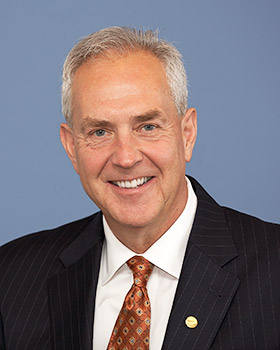
Being a pioneer means that you break new ground, that you are the first organization to do or create something. In our 68-year history, Flight Safety Foundation has been the first in a number of ways.
We have a picture hanging in our office of the first civilian airplane accident investigation class from 1948. This class was sponsored by the Foundation and focused on many of the topics investigators still study today.
You may be reading this month’s message at the Eden Roc Hotel in Miami Beach, Florida, U.S., while attending our 68th annual International Air Safety Summit (IASS). While it has been renamed a few times, IASS was the first-ever aviation safety conference, and we’ve kept it going since we were founded in 1947. It’s little wonder that IASS is considered one of the best safety summits each year, and we regularly see most of the key safety professionals in the industry among our attendees. The IASS content is consistently high quality and valued by our attendees and members.
The Foundation’s earliest role as a neutral ground for competitors to meet and address safety issues was also unique. These collaborative efforts led to technical projects that were the first of their kind, such as the international task force that produced the FSF Approach and Landing Accident Reduction (ALAR) Tool Kit. Our series of ALAR Tool Kit workshops around the world, led by FSF technical staff and industry experts, were also an industry first, and we are pleased to see these workshops continue.
Recently, you may have read about the FSF Basic Aviation Risk Standard (BARS) program’s about-to-be-released product: the Offshore Helicopter Operations (OHO) standard. This is another first of its kind. Created and vetted by industry experts, it will be the standard for assessing risk in this sort of operation and also widely available to BARS and FSF members. We’ll also see several spin-off products from the OHO, including a flight crew competency training framework and a collection of reference documents.
And finally, for the first time, a comprehensive study is being undertaken to truly understand the state of aviation safety data collection, sharing and analysis in key regions of the world. This is the Global Safety Information Project (GSIP), under a cooperative agreement with the U.S. Federal Aviation Administration. We are working in the fast-growing Asia Pacific and Pan America regions with industry stakeholders to understand how data are being collected and analyzed. This understanding will lead to tool kits and workshops to spread best practices and share knowledge.
These are just a small sampling of the Foundation’s “firsts,” and we look forward to continuing to be a pioneer in aviation safety.